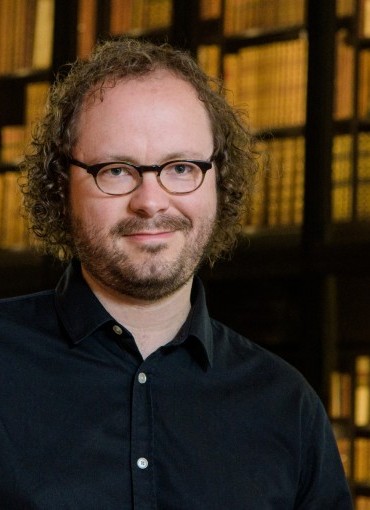Festival of Ideas - 21 October 2017 - Freedom and Persuasion in the Attention Economy
Duration: 27 mins 1 sec
Share this media item:
Embed this media item:
Embed this media item:
About this item

| Description: |
James Williams, winner of the inaugural $100,000 Nine Dots Prize, Oxford doctoral candidate and former Google employee, explains his answer to the set question, 'Are digital technologies making politics impossible?'. Here's a sneak peek.
James Williams, a former Google employee and doctoral candidate researching design ethics at Oxford University, won the inaugural US$100,000 Nine Dots Prize with his entry, Stand Out of Our Light: Freedom and Persuasion in the Attention Economy. Challenged to answer the question 'Are digital technologies making politics impossible?', James argued yes, digital technologies are making all forms of politics worth having impossible as they privilege our impulses over our intentions and are 'designed to exploit our psychological vulnerabilities in order to direct us toward goals that may or may not align with our own'. In this event, he will cover: How the 'distractions' produced by digital technologies are much more profound than minor ‘annoyances’ How so-called 'persuasive' design is undermining the human will and ‘militating against the possibility of all forms of self-determination’ How beginning to 'assert and defend our freedom of attention' is an urgent moral and political task This event is organised by CRASSH in collaboration with the Nine Dots Prize and Cambridge University Press. |
|---|
| Created: | 2018-01-12 10:59 |
|---|---|
| Collection: | CRASSH Festival of Ideas 2017 |
| Publisher: | University of Cambridge |
| Copyright: | Glenn Jobson |
| Language: | eng (English) |
| Keywords: | James Williams; CRASSH; Festival of Ideas; |
| Abstract: | James Williams, winner of the inaugural $100,000 Nine Dots Prize, Oxford doctoral candidate and former Google employee, explains his answer to the set question, 'Are digital technologies making politics impossible?'. Here's a sneak peek.
James Williams, a former Google employee and doctoral candidate researching design ethics at Oxford University, won the inaugural US$100,000 Nine Dots Prize with his entry, Stand Out of Our Light: Freedom and Persuasion in the Attention Economy. Challenged to answer the question 'Are digital technologies making politics impossible?', James argued yes, digital technologies are making all forms of politics worth having impossible as they privilege our impulses over our intentions and are 'designed to exploit our psychological vulnerabilities in order to direct us toward goals that may or may not align with our own'. In this event, he will cover: How the 'distractions' produced by digital technologies are much more profound than minor ‘annoyances’ How so-called 'persuasive' design is undermining the human will and ‘militating against the possibility of all forms of self-determination’ How beginning to 'assert and defend our freedom of attention' is an urgent moral and political task This event is organised by CRASSH in collaboration with the Nine Dots Prize and Cambridge University Press. |
|---|---|
Available Formats
| Format | Quality | Bitrate | Size | |||
|---|---|---|---|---|---|---|
| MPEG-4 Video | 1280x720 | 2.95 Mbits/sec | 598.70 MB | View | Download | |
| MPEG-4 Video | 640x360 | 1.27 Mbits/sec | 258.84 MB | View | Download | |
| WebM | 1280x720 | 1.02 Mbits/sec | 207.24 MB | View | Download | |
| WebM | 640x360 | 289.18 kbits/sec | 57.26 MB | View | Download | |
| iPod Video | 480x270 | 490.89 kbits/sec | 97.14 MB | View | Download | |
| MP3 | 44100 Hz | 249.82 kbits/sec | 49.49 MB | Listen | Download | |
| Auto * | (Allows browser to choose a format it supports) | |||||

